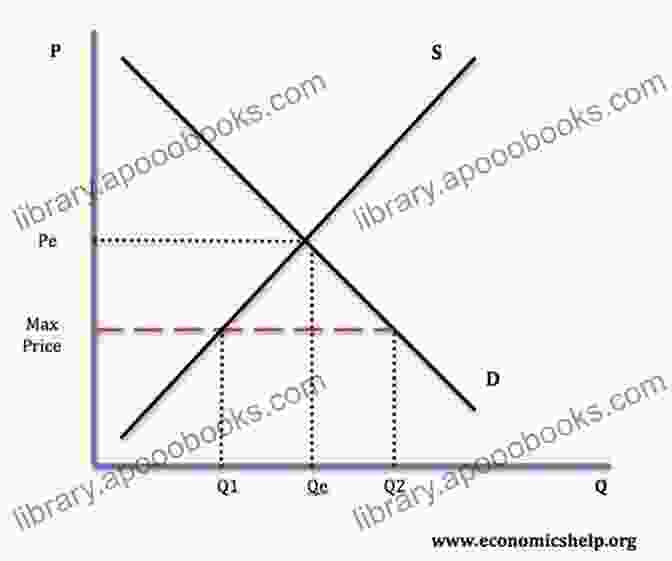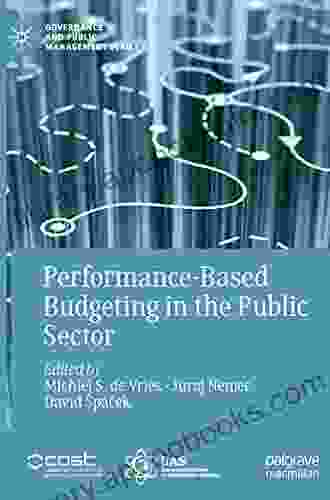In the midst of our current economic landscape, characterized by a widening wealth gap and stagnant wages for the majority, a bold and counterintuitive solution has emerged: the implementation of a maximum wage. This radical concept has stirred controversy and sparked heated debates, yet it holds immense potential to address the systemic injustices plaguing our society.

4.2 out of 5
| Language | : | English |
| File size | : | 227 KB |
| Text-to-Speech | : | Enabled |
| Screen Reader | : | Supported |
| Enhanced typesetting | : | Enabled |
| Word Wise | : | Enabled |
| Print length | : | 140 pages |
| Lending | : | Enabled |
The Problem with Unbridled Capitalism
The traditional capitalist model, with its emphasis on unfettered free markets, has led to an alarming concentration of wealth in the hands of a fortunate few. The gap between the richest and the poorest continues to expand, creating a chasm of economic inequality that has detrimental consequences for society as a whole.
Unchecked capitalism breeds a culture of rampant consumerism and excessive accumulation, where the pursuit of profit often takes precedence over social well-being. This relentless drive for wealth has not only exacerbated income disparity but also contributed to environmental degradation and a host of other societal ills.
The Case for Maximum Wage
A maximum wage is a legal limit imposed on the maximum amount of income a person can earn. By setting an upper bound on earnings, it aims to reduce the excessive concentration of wealth and create a more equitable distribution of resources.
Proponents of maximum wage argue that it can:
- Reduce income inequality: By limiting the earnings of the highest earners, a maximum wage would redistribute wealth to those at the lower end of the economic spectrum.
- Stimulate job creation: As high-earners no longer have incentive to hoard wealth, they may be more likely to invest it in creating new businesses or funding innovative projects, leading to job creation and economic growth.
- Promote social cohesion: Extreme wealth inequality can create divisions and resentment within society. A maximum wage would help to bridge the gap between the rich and the poor, fostering a sense of unity and community.
- Reduce environmental damage: Exorbitant consumption by the wealthiest individuals often contributes to environmental degradation. A maximum wage would curb excessive consumerism, reducing the overall ecological footprint of society.
Objections and Counterarguments
Despite the potential benefits, the concept of a maximum wage has faced resistance from various quarters. Some of the common objections include:
- Disincentivizes innovation and hard work: Critics argue that a maximum wage would discourage the most talented and motivated individuals from pursuing their full potential, as the reward for their efforts would be artificially capped.
- Reduced economic growth: Some economists contend that limiting the earnings of high-earners would reduce investment and slow down economic growth, ultimately harming the entire economy.
- Government overreach: Others view a maximum wage as an excessive government intervention in the free market, infringing on individual liberty and economic freedom.
However, proponents of maximum wage counter these objections by pointing out that:
- Innovation can be driven by non-monetary incentives: While financial rewards can motivate some, innovation and hard work can also be driven by intrinsic motivation, a desire to make a difference, or the pursuit of recognition.
- Economic growth can be achieved through shared prosperity: Instead of relying solely on the wealth accumulated by the few, a maximum wage would promote economic growth by stimulating demand from the majority of consumers, who have historically been underserved by traditional capitalism.
- Government has a responsibility to ensure economic justice: The free market has proven incapable of self-regulating and addressing the glaring inequalities that it has created. Government intervention is necessary to correct these market failures and promote a more just and equitable society.
International Perspectives
The concept of a maximum wage is not entirely new and has been implemented in various forms in some countries around the world. In Austria, for example, the highest-paid public sector employees earn no more than 12 times the lowest-paid, ensuring a reasonable salary differential.
While there is no consensus on the optimal level for a maximum wage, the Austrian example suggests that it is possible to implement such a policy without stifling economic growth or creating undue hardship for high-earners.
The case for a maximum wage is a compelling one. It presents a bold and revolutionary solution to the systemic economic inequalities that plague our society. By limiting the excessive concentration of wealth, it aims to create a more just and equitable distribution of resources, stimulate job creation, promote social cohesion, and reduce environmental damage.
While the concept may face resistance from some quarters, the potential benefits far outweigh the perceived drawbacks. As we navigate the challenges of the 21st century, it is imperative that we explore innovative and transformative solutions to address the glaring injustices of our time. The maximum wage is one such solution that deserves serious consideration and debate.
Embracing the maximum wage would be a testament to our collective commitment to building a more just and prosperous society for all. It would mark a paradigm shift away from the unchecked excesses of capitalism and towards a future where economic fairness and shared prosperity prevail.

























































































